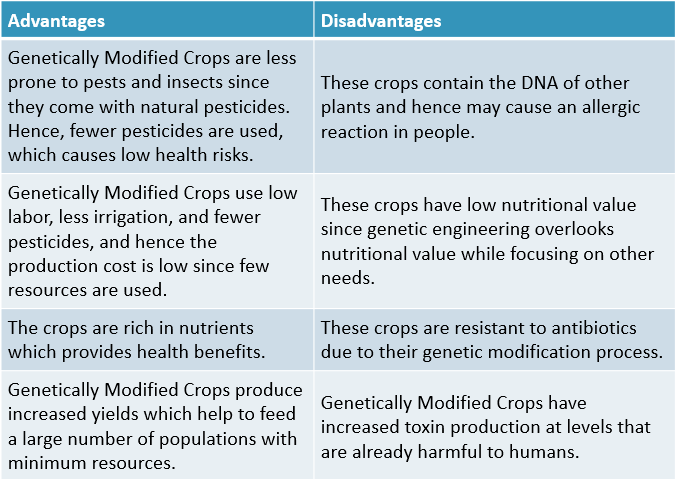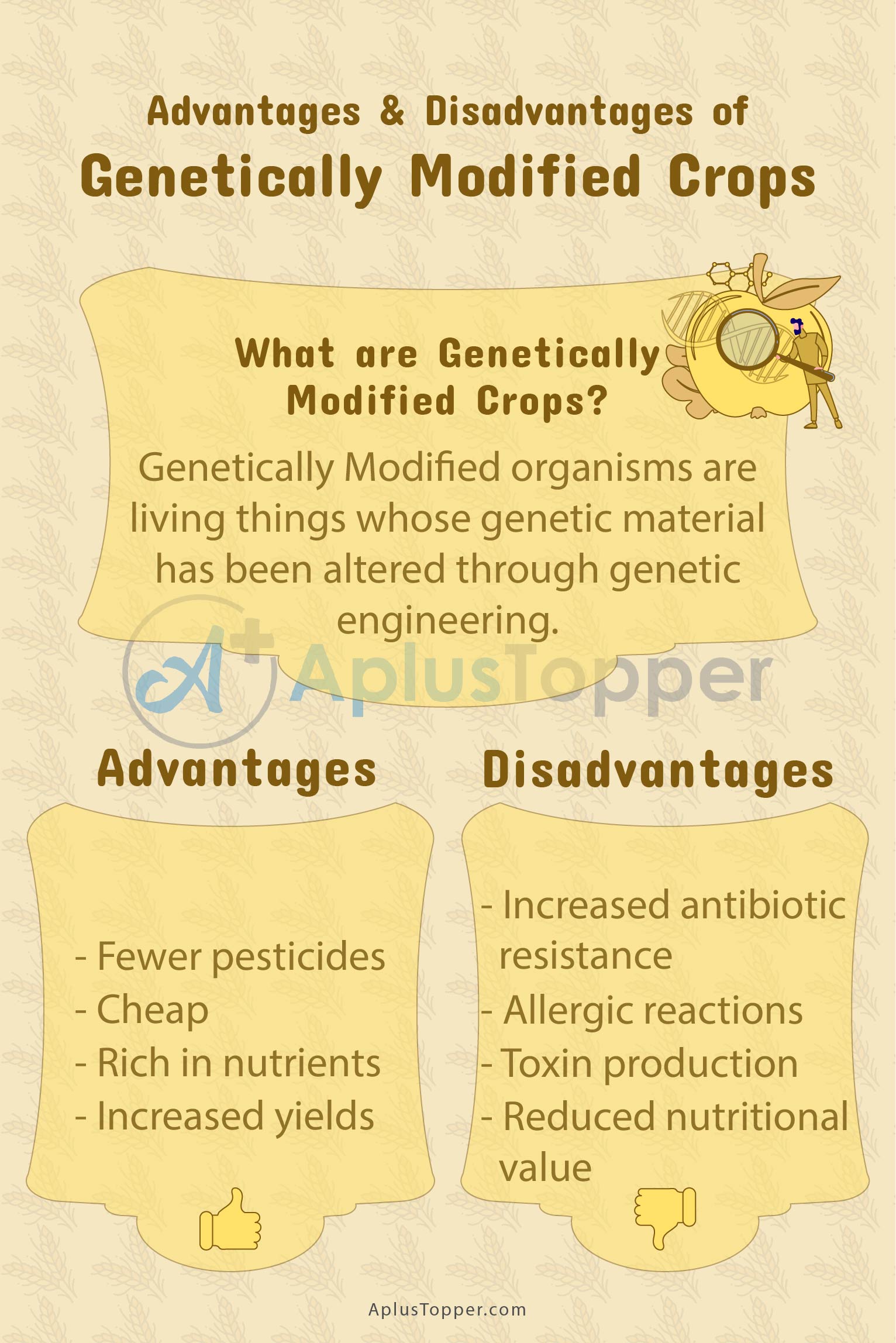What Are The Advantages Of Genetic Engineering In Agriculture?
Benefits Of Genetic Modification In Agriculture And The Environment
Keywords searched by users: What are the advantages of genetic engineering in agriculture Disadvantage of genetic engineering, Benefits of genetic engineering, Genetically modified crops, Genetically modified food, Genetic engineering, Pros and cons of genetic engineering, Many companies are now using genetic engineering, Benefits of genetically modified food
What Are The Disadvantages Of Genetic Engineering In Agriculture?
The drawbacks associated with genetic engineering in agriculture encompass a range of potential environmental and ecological concerns that necessitate careful consideration. These concerns include cross-contamination between genetically modified and non-modified crops, which may impact the genetic purity of traditional crops. Additionally, there is the risk of increased weediness, where genetically modified plants exhibit greater vigor and become more challenging to manage in agricultural ecosystems. Another potential issue is the unintended gene transfer to wild or weedy relatives, which could lead to ecological imbalances.
Furthermore, genetic engineering can alter herbicide use patterns, potentially promoting the overuse of herbicides and contributing to herbicide-resistant weed populations. This practice may also lead to the squandering of valuable pest susceptibility genes, diminishing their effectiveness over time. Moreover, genetically engineered crops could pose risks to wildlife, potentially leading to poisoned wildlife due to exposure to modified plant toxins.
Finally, genetic engineering may inadvertently result in the creation of new or more virulent viruses, as altered plant genetics can affect their interactions with pathogens. Addressing these disadvantages is crucial for responsible and sustainable agricultural practices that prioritize both food security and environmental conservation.
What Are The Advantages And Disadvantages Of Genetic Modification In Agriculture?
Genetic modification in agriculture, often referred to as GMOs (Genetically Modified Organisms), brings about various benefits and drawbacks. On the positive side, GMO foods offer enhanced nutritional content due to the ability to introduce beneficial genes. They also contribute to reducing the need for extensive pesticide use, thus potentially benefiting the environment and human health. Additionally, GMO crops can lead to more affordable food prices, potentially addressing issues of food accessibility and affordability.
However, it’s essential to consider the potential downsides of genetic modification. Allergic reactions can arise as a concern, as introducing foreign genes into crops may result in proteins that trigger allergies in some individuals. Furthermore, there is apprehension about the development of antibiotic resistance, as some GMOs may contain antibiotic resistance genes, potentially impacting the effectiveness of antibiotics in medical treatments.
Overall, the discussion surrounding genetic modification in agriculture is multifaceted, involving both potential advantages and disadvantages, necessitating a balanced assessment of its implications for food production and consumption.
Share 16 What are the advantages of genetic engineering in agriculture







Categories: Update 20 What Are The Advantages Of Genetic Engineering In Agriculture
See more here: b1.brokengroundgame.com

Some benefits of genetic engineering in agriculture are increased crop yields, reduced costs for food or drug production, reduced need for pesticides, enhanced nutrient composition and food quality, resistance to pests and disease, greater food security, and medical benefits to the world’s growing population.Advantages of GMO foods include added nutrients, fewer pesticides, and cheaper prices. Disadvantages of GMO foods can be allergic reactions or increased antibiotic resistance.It is used in agriculture to do things such as, improve the yields of important economic crops, and provide insect or pest resistance. It is also used in the medical field to create insulin, which can be used for treating diabetes .
- Cross Contamination.
- Increased Weediness.
- Gene Transfer to Wild or Weedy Relatives.
- Change in Herbicide Use Patterns.
- Squandering of Valuable Pest Susceptibility Genes.
- Poisoned Wildlife.
- Creation of New or Worse Viruses.
- GMOs improve the quality of food that is cultivated.
- GMOs are simpler to grow.
- They increase the yield that a person can produce on their current land.
- GMOs can be shipped to remote parts of the earth.
- GMO crops use fewer chemicals than other crops.
- GMOs can conserve water, soil, and energy.
Learn more about the topic What are the advantages of genetic engineering in agriculture.
- Genetically Modified Organisms (GMOs) – Nature
- Risks of Genetic Engineering | Down to Earth Organic and Natural
- GMO Pros and Cons, Based on Health and Environment Evidence
- Potential benefits and risks of genetic engineering – Variation
- Discuss the advantages of GMO Biology Q&A – BYJU’S
- 6 Major Disadvantages of Genetically Modified Foods | Biology Explorer
See more: blog https://b1.brokengroundgame.com/media

